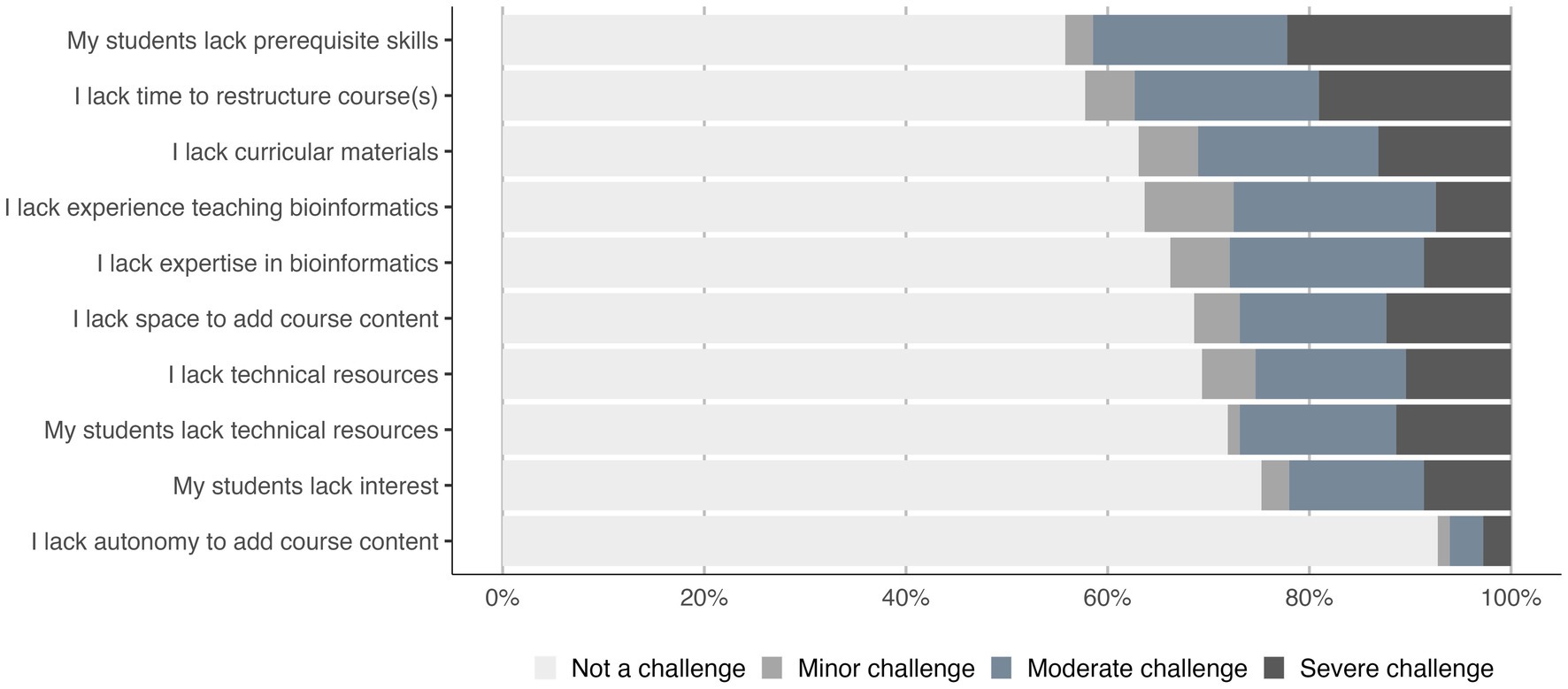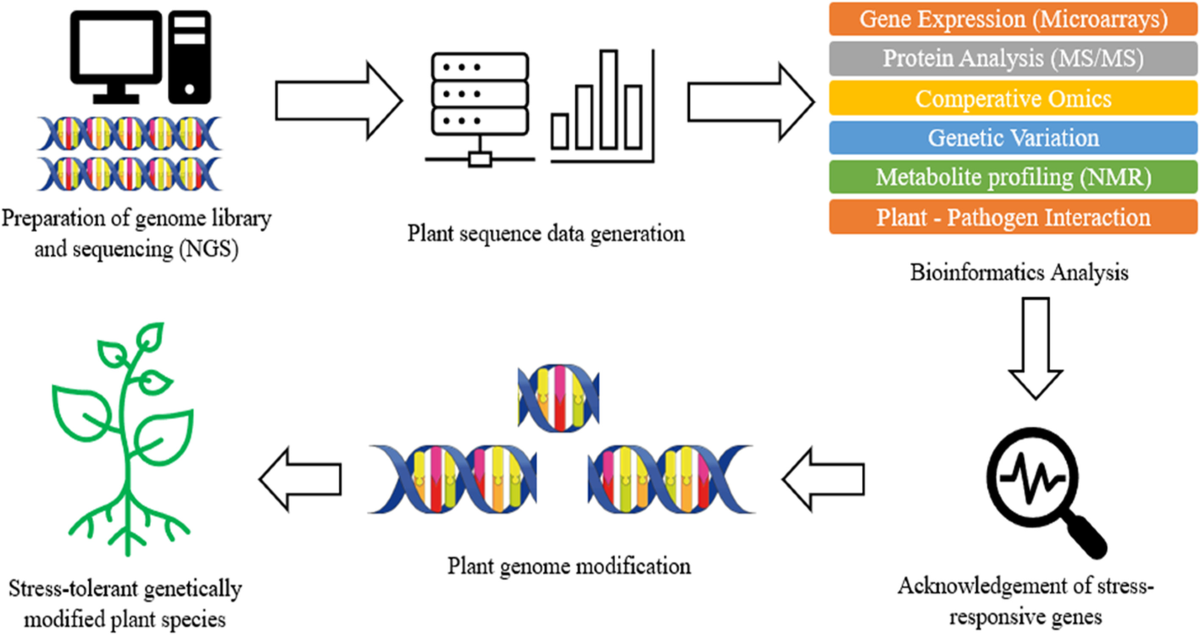The Main Principles Of Bioinformatics Tutor
The Main Principles Of Bioinformatics Tutor
Blog Article
The 10-Minute Rule for Bioinformatics Tutor
Table of ContentsNot known Facts About Bioinformatics TutorSome Known Factual Statements About Bioinformatics Tutor Getting The Bioinformatics Tutor To WorkBioinformatics Tutor - TruthsUnknown Facts About Bioinformatics Tutor
Of the overall participants involved in the training, 80% were pupils from public college institutions, while the staying 20% came from private institutions. To get approved for a certification of participation, pupils were needed to go to at least 90% of the overall training hours. As a result of this requirement, an outstanding 95% of the individuals effectively acquired their certificates, having not only fulfilled the minimum participation criteria however also finished all assigned tasks throughout the training.
During the elevation of the COVID-19 pandemic, specifically between June and August 2020, the job team was charged with arranging specialized training in bioinformatics. This training was particularly focused on trainees from the study group Center for Study in Applied Computing at the Federal College of Pará (UFRA) The adaptation to remote understanding platforms because of the pandemic developed a chance to discover new mentor techniques and digital tools that boosted both reach and effectiveness.
This program was designed to give an available yet extensive summary of Artificial Intelligence techniques, particularly as applied in bioinformatics (Bioinformatics Tutor). This virtual style enabled engagement from pupils across Brazil, several of whom might not have had the possibility to go to in-person sessions.
What Does Bioinformatics Tutor Mean?
A noteworthy attribute of this course was its emphasis on hands-on understanding. Roughly 50% of the total training hours were committed to practical activities where trainees constructed intelligent designs and applications in an array of clinical domain names, including genes, molecular biology, and ecological data analysis. Commonly made use of devices and structures such as Spyder, Google Colab, Jupyter Notebooks, and Orange were incorporated right into the coursework. These platforms allowed trainees to take part in real-time information control, design training, and algorithm testing.
The training course attracted 80 participants in total. Sixty of them were connected with numerous greater education and learning institutions in the state of Pará, while the continuing to be twenty originated from organizations found in 5 other Brazilian states. This broad geographical representation highlighted the nationwide interest in bioinformatics and the growing demand for specialized abilities in this location. By introducing Expert system in a pertinent and functional context, the effort served to bridge the gap in between theory and real-world application, providing pupils with a strong structure for future research or work in the field.
The training campaign formed component of a broader scholastic outreach initiative referred to as the Bioinformatics when traveling task. This job has, throughout the years, presented dozens of trainees to the globe of bioinformatics and computational biology. The events held under this umbrella effort have actually happened throughout multiple areas and years, as summarized in Table 1 (Listing of occasions, locations, years, and overall numbers of students and trainers)
Several of these teams, originally brought with each other by their participation in training events, have because gone on to create independent scientific research study in cooperation use this link with regional academic organizations. The training not only promoted clinical thinking within the context of bioinformatics however also sparked collaborative partnerships that expanded past the training atmosphere.
Everything about Bioinformatics Tutor
The job itself was conceptualized and arranged by MB and RR, that looked after the planning and application of each step. Lectures were supplied by a multidisciplinary team including MB, FA, EF, KP, JS, DM, SN, LP, LG, A/C, IH, and RR. The same group, leaving out IH and RR, also served as tutors for the useful training modules. Financing for the project was supplied through the give 88887.200562/ 2018-00 from CAPES. The writers prolong their appreciation to every person who added to the realization of this task, whether directly or indirectly, considering that its inception.
The Federal University of Pará's Office of Research study (PROPESP/UFPA) additionally offered financial backing, specifically for the production of the final manuscript. The writers proclaim no commercial or monetary disputes of passion that could have influenced the research study. All analyses and point of views shared in this article are solely those of the authors and do not necessarily mirror those of their corresponding establishments, the author, editors, or customers entailed in the magazine process.

What Does Bioinformatics Tutor Do?
From an instructional viewpoint, the training technique used in the training was intentionally interactive. Courses were performed in a way that encouraged student engagement and conversation, surpassing rote memorization to explore how concepts are created, used in every day life, and tested in scholastic setups. The training ideology concentrated on nurturing both solid and having a hard time more tips here students, offering individualized assistance, and building confidence via sustained mentorship and patience.
Each group, consisting of Get More Info around 36 participants, was supported by 3 coaches-- a lot of whom were postdoctoral scientists with specific competence. These coaches not only aided develop the group projects but additionally facilitated their execution, ensuring that each study concern was both relevant and suitably difficult. The goal was to provide a naturally reasonable context that individuals might check out with flexible goals and accessibility to curated datasets.
For extra understandings into the approach and outcomes of this project-based discovering method, viewers are directed to S1 Text, that includes comprehensive summaries of the pedagogical structure, analysis strategies, and project motifs used in the training sessions.
Bioinformatics Tutor Things To Know Before You Buy
Of the total amount participants included in the training, 80% were trainees from public greater education institutions, while the staying 20% came from private organizations. To qualify for a certification of engagement, students were needed to go to at the very least 90% of the complete training hours. Especially, past the students that registered in the training sessions, seven knowledgeable instructors took part in delivering the programs, while 3 specialized study teachers worked with the overall training process. Roughly 50% of the total training hours were dedicated to useful activities where trainees developed smart designs and applications in a variety of scientific domains, consisting of genetics, molecular biology, and environmental data evaluation. The training not just cultivated scientific reasoning within the context of bioinformatics yet additionally stimulated collective relationships that extended beyond the training environment.
Report this page